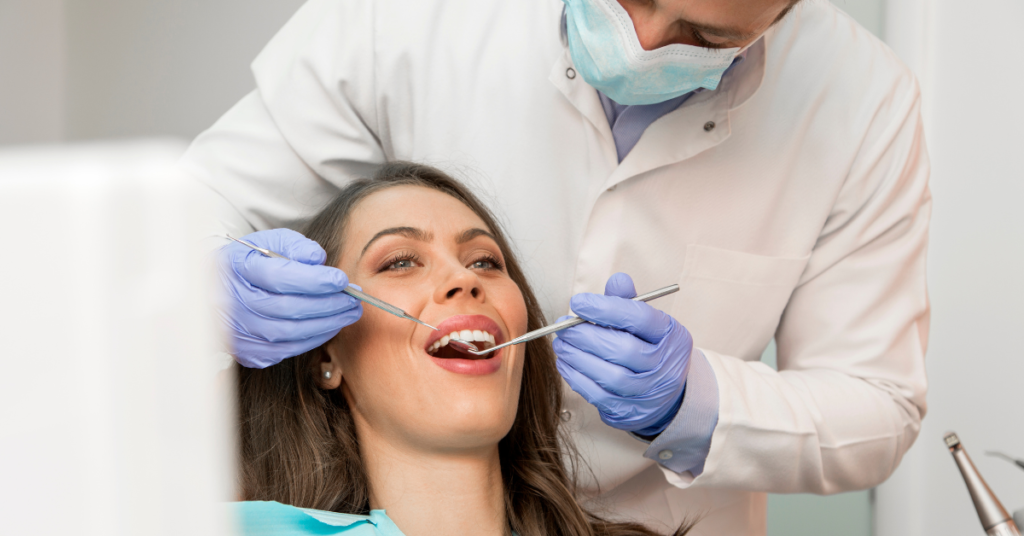
Introduction
Maintaining optimal oral health is essential not just for a bright smile but for overall well-being. Regular dental checkups play a critical role in this maintenance, serving as the foundation for preventative healthcare. These visits allow dental professionals to identify potential issues before they escalate into serious problems, such as gum disease or cavities, ensuring that your teeth and gums remain healthy for years to come. A proactive approach to dental care can save you time, money, and discomfort in the long run.
Despite the evidence supporting the necessity of regular dental checkups, many myths continue to circulate. One prevalent misconception is that if you don’t experience pain, there’s no need to see a dentist. This myth can be particularly harmful, as many dental problems, such as decay, can develop silently. Another myth suggests that dental checkups are only for adults. In reality, children and adolescents benefit significantly from early dental care, which helps set the stage for a lifetime of good oral health.
Typically, most dental professionals recommend visiting the dentist every six months. This guideline stems from a proactive approach to dental health, balancing the needs of the average patient. However, individual factors may influence how often you should schedule your appointments. Understanding these guidelines can help you tailor your dental visit frequency to your specific needs.
Why Every Six Months?

Preventative Care: The First Line of Defense
Regular dental checkups contribute to preventative care, which focuses on maintaining oral health before problems arise. During these visits, your dentist performs thorough cleanings and examinations that help eliminate plaque and tartar, which can lead to cavities and gum disease. This preventative approach is not just about solving existing problems; it’s primarily about avoiding them altogether.
Understanding Plaque and Tartar Buildup
Plaque is a sticky film of bacteria that forms on your teeth after eating. If not removed through proper brushing and flossing, plaque can harden into tartar. Tartar is much more difficult to eliminate and requires professional cleaning to remove. Regular checkups ensure that both plaque and tartar are effectively managed, significantly reducing the likelihood of advanced dental issues.
The Role of Regular Cleaning in Oral Health
Routine dental cleanings complement your at-home oral hygiene practices. They remove plaque buildup that your toothbrush can’t reach and polish your teeth to promote a healthier mouth. Visiting your dentist regularly enables them to assess your oral care routine and provide tailored advice, ensuring your efforts at home are as effective as possible.
Factors Influencing the Frequency of Dental Visits
Individual Oral Health Needs
Not everyone has the same oral health requirements. Factors such as age, lifestyle, diet, and personal habits can influence how often you should visit your dentist. For example, individuals with braces or those prone to cavities may need more frequent visits to monitor changes and address issues efficiently.
Family History of Dental Diseases
A family history of dental issues can increase your risk for certain oral health problems. If your parents or siblings have a history of gum disease, tooth decay, or other oral conditions, your dentist may recommend more frequent checkups to monitor and manage your oral health actively.
Existing Medical Conditions
Certain medical conditions, such as diabetes or autoimmune disorders, can impact your oral health. Regular dental visits allow your dentist to watch for signs of complications that may arise from these conditions, ensuring that your mouth stays as healthy as your body.
Signs That You May Need More Frequent Checkups

Indicators of Oral Health Problems
Recognizing the signs that indicate a need for more frequent dental visits is crucial. Symptoms like persistent bad breath, swollen or bleeding gums, and tooth sensitivity warrant immediate attention. These issues could signal underlying problems that require professional evaluation and intervention.
Why Timely Intervention is Crucial
Addressing oral health issues promptly can prevent them from worsening and leading to more severe complications. For instance, a small cavity left untreated can develop into a root canal situation. By scheduling additional visits when problems arise, you can save yourself from discomfort and financial strain.
Patient Stories: When Six Months Isn’t Enough
Consider the case of a patient with a history of gum disease who found that attending dental checkups every three to four months made a significant difference in their oral health. This patient’s story emphasizes the importance of tailoring dental care to individual needs, rather than strictly adhering to a six-month rule.
What to Expect During a Dental Checkup
Components of a Standard Dental Checkup
Dentist visits typically include two key components: a thorough cleaning and a detailed examination.
A dental hygienist will start by removing plaque and tartar from your teeth using specialized tools. This process is followed by polishing your teeth, which helps eliminate surface stains and makes it easier to keep your teeth clean in-between visits.
After the cleaning, your dentist will conduct a thorough examination of your teeth, gums, and mouth. They will look for signs of decay, gum disease, and other issues. Your dentist may also take X-rays as necessary to assess the health of your teeth below the surface.
Additional Tests and Procedures
Depending on your needs, your dentist may recommend additional tests or treatments during your visit. This may include fluoride treatments for children, sealants for at-risk teeth, or referrals for orthodontic evaluations.
Communication with Your Dentist: What to Discuss
Open communication with your dentist is vital for effective oral care. Be sure to discuss any concerns, changes in your dental health, or questions regarding your at-home oral hygiene routine. Your dentist can offer valuable insights to help you improve your oral health.
The Consequences of Skipping Checkups

Long-term Risks to Oral Health
Neglecting regular dental visits can lead to a range of serious complications. Potential risks include the development of significant tooth decay, gum disease, and even tooth loss. The longer these issues remain untreated, the more likely they are to have severe consequences for your oral and overall health.
Financial Implications of Neglected Dental Care
Falling behind on dental care can be costly. What starts as a minor dental issue can require more extensive and expensive treatments down the line. By prioritizing regular checkups, you can save money and maintain better oral health.
The Psychological Effects of Dental Anxiety
For some individuals, the fear of dental visits can be overwhelming and can contribute to avoiding necessary checkups. This cycle can exacerbate existing issues, leading to more severe dental health problems and increased anxiety. Addressing these fears with your dentist can help create a supportive environment.
Conclusion
Regular dental checkups are an essential part of preventive healthcare. While the typical recommendation is every six months, individual factors may necessitate more frequent visits. Understanding your unique oral health needs is critical to maintaining a healthy smile.
Your oral health influences your overall well-being, and routine dental care plays a vital role in preserving it. Make a commitment to prioritize regular checkups as a crucial part of your health routine.
Building a positive relationship with your dentist can foster a comfortable environment that encourages open communication and proactive care. By visiting regularly and discussing your dental needs, you empower yourself to achieve and maintain excellent oral health.
